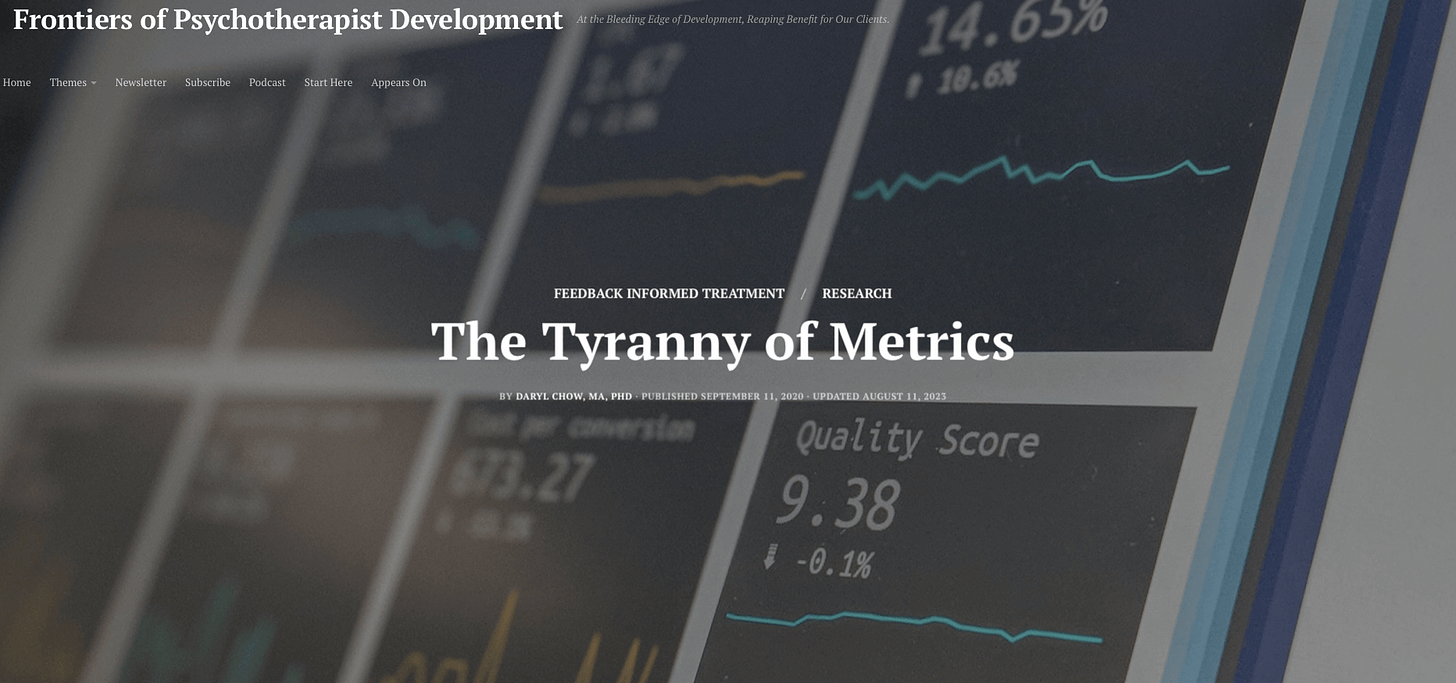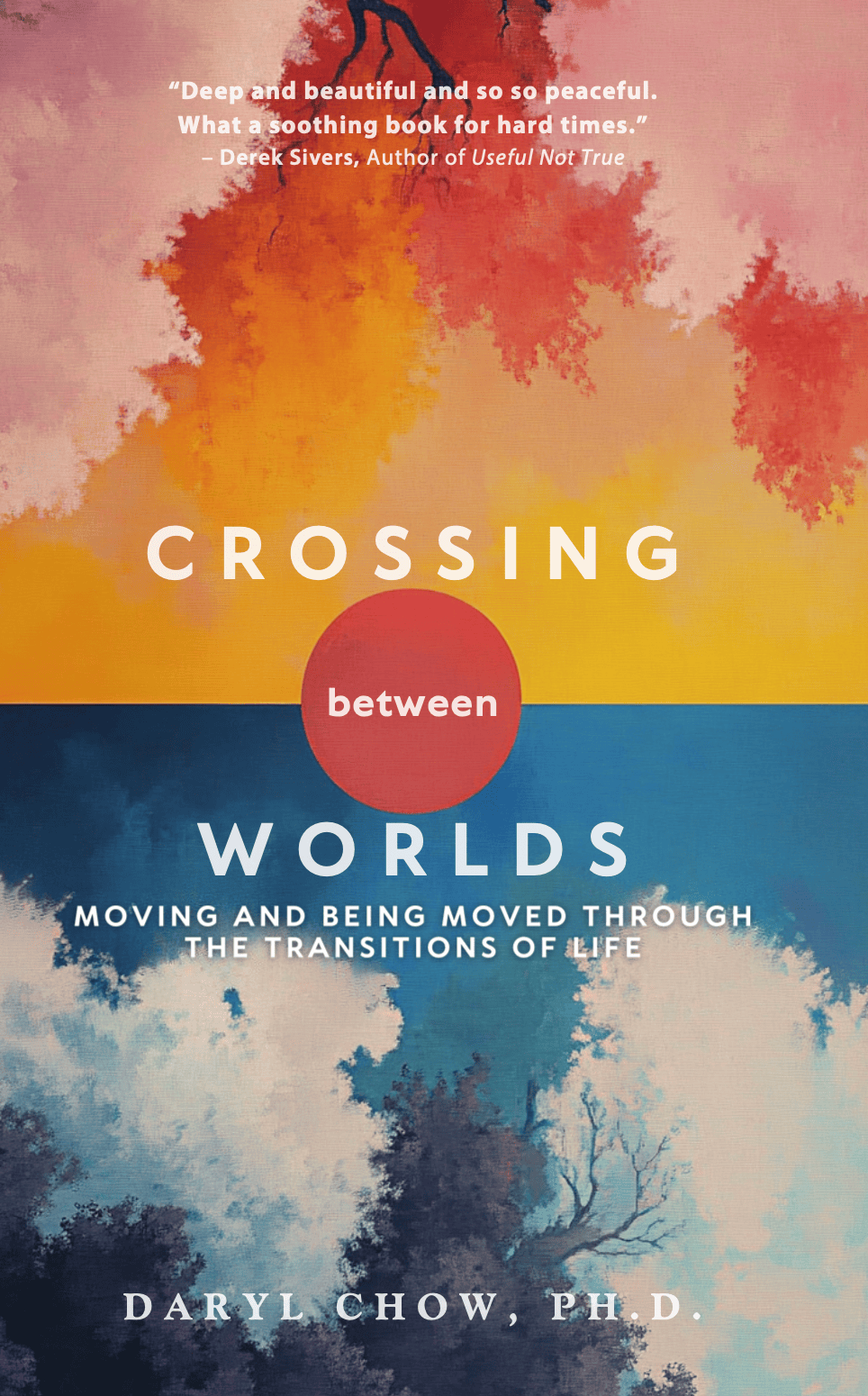Professional Orphans #213 ⭕️
Navigating a career in the helping profession without real help.
1. Jung’s Loneliness
After a long refusal to pen his autobiography, shortly before his death at age 81 (1961), Carl Jung finally agreed to publish his reflections and compilation of his letters to friends and colleagues called, Memories, Dreams, and Reflections. In the final chapter titled Retrospect, Jung opened up about his experience of loneliness. He said,
Basically, that relationship was the same in my childhood as it is to this day. As a child I felt myself to be alone, and I am still, because I know things and must hint at things which others apparently know nothing of, and for the most part do not want to know.
Jung added,
Loneliness does not come from having no people about one, but from being unable to communicate the things that seem important to oneself, or from holding certain views which others find inadmissible (emphasis mine).
2. Therapist’s Left to Find Their Own Paths
Speaking with therapists around the world, I sense that many—not only the neophytes—are professionally orphans.
I see how orphaned many of us feel. Orphaned in a sense that we receive little to no real guidance after becoming licensed or accredited. Most PD activities doesn’t seem to address this. These workshops and trainings focuses on giving you more inputs, knowledge and information, oftentimes in the name of “evidence-based practice.” Rare are the ones that tap into your hidden truths and native wisdom.
Psychotherapy can be a lonely endeavour. Ironically, we are rarely alone in a room, but so much of our inner monologues fail to find a room to breathe in a dialogue with someone else other than our clients.
Sure, we might have a supervisor at work, but given the organisational arrangements of gatekeeping performance, the context doesn't seem to be conducive for emotional safety. Supervisees don’t necessary talk about the things that actually need to be talked about, mainly because they don’t feel safe enough with their particular supervisors
And if you are in private practice, it can get more lonely.
So we end up a large percentage of time at work without anyone really knowing us in a deep way.
Even though for many therapists direct counselling/therapy work is the primary J.D., I find it really bizarre that employees are wrangled to not only do more extra curriculum side-projects outside of the therapy room (as if that's not enough of emotional labour), but their KPIs are tagged to all kinds of stuff outside the therapy room. Organisations create a sort of contradiction that invites neglect of the person of the therapist.
Plus, therapists find themselves less and less in the clinical consultation room, and more and more in the boardroom.
On top of that, therapists are pressed by their managers with the tyranny of metrics, only because these managers have to justify specific numbers to their bosses. Meanwhile, therapists see no value in such measurement. Instead of measuring what is of value to their clients, they are told to value what is asked of them to measure.
Consequently, in the era of “managed societies,” instead of truly focusing on patient-care, we focus on numbers, so that the bean counters can account for what we do.
Have we lost sight of what it means to care for others, and to care for those who care?
SEE RELATED:
3. The Professional and The Personal
The practice of psychotherapy is one of the few professions that the personhood needs to fully show up in the profession. The artificial split that we so intuitively promote about separating the person from the profession lures us into a false assumption that our work is one that is measured by productivity.
This is perhaps one of the few profession that our personhood and professional-hood is less divided.
Moreover, in order for us to do our best work, the practice of psychotherapy needs to be less of an individual sport and of a communal act. It's not enough to just be told that we need some doses of "self-care." What we need to do is to design our practice to have "auxillary" minds that we feel safe and supported, thus feeling less "orphaned" and neglected.
Feelings of neglect has an antidote: To feel at home in the presence of others who cares for those who cares.
Yet, many are left to fend for themselves. Even if they belong in organisations and teams, they experience a kind of slience about the parts of themselves that is left unexpressed. As Jung said "unable to communicate the things that seem important to oneself, or from holding certain views which others find inadmissible."
4. Hidden Truths
Returning to Jung’s reflection on loneliness, he said,
I have offended many people, for as soon as I saw that they did not understand me, that was the end of the matter so far as I was concerned. I had to move on. I had no patience with people aside from my patients. I had to obey an inner law which was imposed on me and left me no freedom of choice. Of course I did not always obey it. How can anyone live without inconsistency?
What was it that was “inadmissible” for Jung, as quoted earlier? What did his colleagues not understand him about?
It appears that this isolation stemmed from several key factors:1
Unique Inner Experiences: Jung's "inner" experiences were vivid and colourful, unlike the "outward events" of his life, which seemed insignificant to him. These included his early dreams and visions, which he felt were profoundly important but were also difficult to share with others.
Rejection of prevailing views: Jung's ideas about the unconscious, religion, and sexuality diverged significantly from those of his contemporaries, including Freud2.... His exploration of the unconscious led him to challenge Freud's emphasis on sexual trauma as the sole cause of neuroses.... This divergence led to a break with Freud and the rejection of Jung's ideas by many of his peers7....
Religious Ideas: It appears that Jung's religious views differed from traditional Christianity. This made him an "outsider" and led to misunderstandings of his work. He felt that his religious ideas were not properly understood and was frustrated by this.
Spirituality: Jung talked about the spiritual aspects of sexuality and his interpretations of dreams, which did not fit the prevailing theories of the time.
Empirical: His ideas about the archetypes and the collective unconscious were not easily accepted because they could not be empirically demonstrated.
Difficulty in Communication: Jung found it difficult to communicate his unique ideas and insights to others. He felt that people were often estranged from or distrustful of his ideas, leading him to withdraw. He was often misunderstood and felt that he could not speak openly about his most important thoughts.
Rejection of Collective Conformity: Jung believed in pursuing his individual goals, even if they deviated from collective norms. This put him at odds with many of his contemporaries, as he did not conform to the established academic and scientific views. He felt that many people surrendered their individuality to fit in, a pattern that he consciously rejected.
The Creative Process: Jung felt driven by a "daimon" and recognized that as a creative person, he had little power over his own lifeThis sense of being driven by inner forces, combined with a lack of understanding from others, further contributed to his feelings of isolation.
That is quite a list.
What are some of your “inadmissible” inner-struggles, buried in your inner-life?
“Dividedness is a personal pathology…The divided life, at bottom, is not a failure of ethics. It is a failure of human wholeness.”
— Parker Palmer, A Hidden Wholeness (pp.6-7).
5. Caring for Those Who Care
As we care for others, we need to tend to our inner and outer lives.
We need guiding lights. We need a community of beacons at different points of our career. Communities are formed not from our strengths and successes, but a willingness to bring our brokenness to the table.
Our minds need other minds, to witness, to share and to validate our ideas and experiences, and its potential application on using them to help others.
Many of us are yearning, “Is it alright for me to reveal own thoughts and ideas, even if they do not sit neatly with the conventional ‘evidence-based’ wisdom? Or are you going try to get me to conform and perform?”
”Whether or not the stories are “true” is not the problem. The only question is whether what I tell is my fable, my truth.”
— Carl Jung, Memories, Dreams, Reflections, p.17
Notice Board:
Apologies for the MIA the last few weeks. I was overseas with the family, and using any spare (and alone) time I have to get the new book ready (see #3). Here’s this week’s notices:
DP Cafe:
Scott Miller and I are back to host the 2nd round of DP cafe, a community of therapist coming together
NOTE: This is not a webinar. This is a close-knit collective.Join Scott Miller and I for four intimate sessions of small group meetings, each organised around your questions and goals with instruction and coaching provided by the group.
(Note: I was just informed that registration is now full. If you are keen to join us for the 3rd cohort of the DP Cafe, kindly drop us an email admin@darylchow.com.)APA Editor’s Choice:
I got a note from the American Psychological Association that our last paper, study Improving Responses to Challenging Scenarios in Therapy: A randomized controlled trial of a deliberate practice training program, is listed in their Editor’s Choice. I had no idea what that meant.
According to APA, “Editor’s Choice papers represent the best science in each area of our discipline, reflecting science that is exceptionally important, impactful, and deserves additional visibility for the whole field.”
That’s nice of you, APA.
If you have yet to read the study, as well as the struggles we faced to get it published, see my post on it in Frontier Friday #207.Crossing Between Worlds:
I’m about to release a book for the general public called Crossing Between Worlds. It’s for people who are making significant transitions. Care to find out more? I’d talk more about this, along with free resources in my other Substack, Full Circles.
Daryl Chow Ph.D. is the author of The First Kiss, co-author of Better Results, The Write to Recovery, Creating Impact, and the latest book The Field Guide to Better Results. Plus, the forthcoming new book, Crossing Between Worlds.
This list was compiled with the assistance of NotebookLM, analysing specifically Jung’s body of work, such as The Red Book, Memories, Dreams and Reflections, Man and His Symbols, Letters of C. G. Jung, Vol. 1.
Freud was a significant figure in Jung's life at an earlier stage, serving as a mentor and collaborator, but their relationship was ultimately marked by intellectual and personal conflict, leading to a separation of ties. Some years ago, there was a movie about them, but as I recall, it was a bit of a let down.






Thank you Daryl, I look forward to your posts and always appreciate them. And I am really looking forward to your new book! Please send a notice as soon as it is ready and available. Happy Friday!
Hi Daryl, thanks for your post! Two things that came up for me as I was reading were Somatic Sensory Sensitivity (Highly Sensitive Person / HSP) and the important criteria (for me) of choosing a consultant/supervisor who I feel comfortable sharing my biggest flops and uncertainties with.
The first thought has been important in my journey (as someone who feels deeply understood when reading about the HSP) in normalizing my traits and differences from others, and helping me notice my needs and limits in my personal and work life. I’m not saying that Jung was an HSP. Reading his quotes did remind me of it, though. (It could just be that it’s on my mind and anything would have reminded me of it.)
Second, it’s been helpful to remember that a good consultant for someone else may not be the best fit for me. It’s not just about finding someone who is qualified and knowledgeable, but someone I know I can show up with and share both my successes and screw ups.
Thanks again and congrats on making APA’s editor’s choice your newest book!